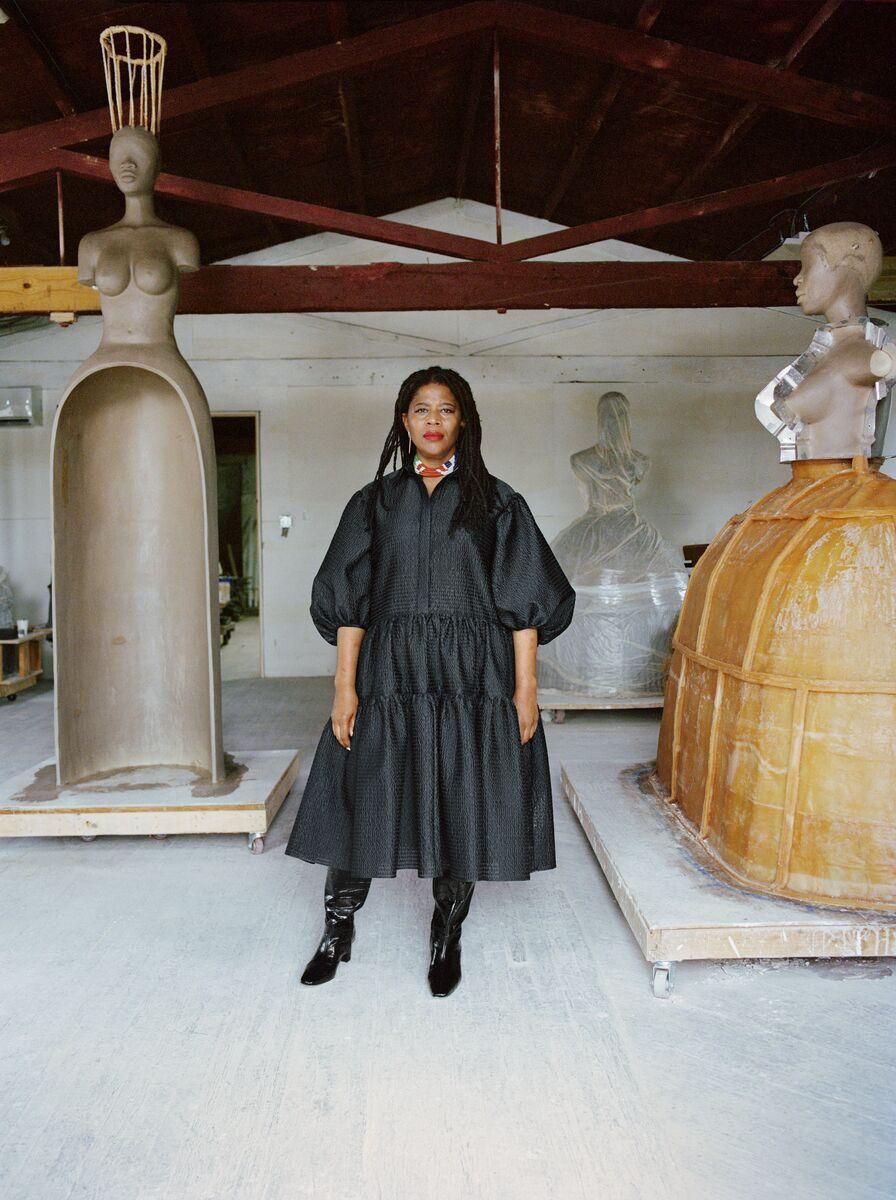A Newcomer to Watch at the Latin Grammys: Nathy Peluso
The Latin Grammy Awards have established themselves over two decades as a flashy, hip-pumping, over-the-top Las Vegas extravaganza. Under pandemic conditions, the 21st annual show, which will be broadcast Thursday night on Univision, will be far different.
Still, many of the top nominees are familiar past winners, among them the Spanish songwriter Alejandro Sanz, the Colombian songwriters Juanes and J Balvin, the Puerto Rican rapper Residente, the Argentine songwriter Fito Páez and the Puerto Rican singer Bad Bunny, who has the most nominations this year. They will all be performing, without live audiences, on this year’s broadcast.
For occasional listeners to the broad spectrum of Latin music, the Latin Grammys provide rare prime-time United States television exposure, and often an introduction, for performers who have already built large followings on their own. Three of the 10 nominees for best new artist will step into the spotlight Thursday night: the Puerto Rican songwriters Anuel AA and Rauw Alejandro and one of the Latin Grammys’ best discoveries, the 25-year-old Argentine songwriter, singer and rapper Nathy Peluso, who just released her debut album, “Calambre” (“Shock”), in October.
In the album’s cover photo, Peluso is leaping in midair, holding an electrical cord and dressed in bandages. “That’s the feeling,” she said. “I’m injured but I’m still rocking it. I’m still working on me. I’m still in the battle.”
She spoke via Zoom from Buenos Aires, where she was rehearsing for her Latin Grammys performance. She kept a browser window open to a translation program to occasionally make sure she had the right word in English.
Instead of choosing a single musical path for her first international release, Peluso chose a dozen at once. Her songs delve into reggaeton, salsa, funk, hip-hop and pop, invoking eras from the 1970s to the 2000s. One track earned her a nomination in the best alternative song category, for “Buenos Aires,” a languid R&B ballad about loneliness and yearning that has jazzy harmonies and a hip-hop undertow.
“She’s really inspired by a lot of music,” said the album’s main producer, Rafa Arcaute, by phone from Miami. Arcaute, who is Argentine, has won multiple Latin Grammys for his work with Calle 13 and is nominated again as producer of the year, an award he won in 2016. “She is super, super young, but in terms of music she is really mature — a young girl with an old mind,” he added. “And at the same time she has an innocence, a sense of discovery. She knows a lot of music, but at the same time is in the process of discovering everything. She really knows the value of the music.”
On the album, Peluso’s voice can change radically from song to song. She’s adamant in “Sana Sana,” a song about a Latin heritage that transcends economics; it references the International Monetary Fund. She’s smoky and flirtatious in “Sugga,” comically desperate in “Amor Salvaje,” sinuous in “Llamame,” brazenly confident in “Business Woman” and breathily hypnotic in “Trio,” which proposes a ménage à trois. At various times, her delivery can suggest Beyoncé, Rihanna, Missy Elliott, the Chilean rapper-singer Ana Tijoux, the Cuban fireball Celia Cruz or the jazz singer Dinah Washington.
“I find different women inside me, different voices,” she said. “I really love to investigate characters.”
Peluso was born in Buenos Aires and moved with her family to Spain when she was 10. “I always felt like an outsider, because my parents were so Argentine,” she said. “In Barcelona, my friends were from Colombia and Puerto Rico, and I was learning about all their cultures. I was crossing barriers all the time. I lived with the feeling that I am a nomad. With my career I’m always traveling, I’m always in a different place, but my soul is my home.”
She knew, early on, that she wanted to perform. She studied audiovisual communication, dance and theater, and as a teenager she sang covers of Frank Sinatra and Nina Simone in hotels and restaurants. For a while she supported herself as a street performer in Madrid, set up with a keyboard and typing what she calls “fast poetry” for cash: “Give me a word and I’ll write a poem in two minutes,” she said. “I started to see I was good. So I started to put music to these poems. How can I sing this? No, I can’t sing this, because it’s too strange. But I can rap it! So I started to rap these poems with lo-fi beats.”
In 2017, she released an EP of those raps, “Esmeralda,” and a no-budget video for the title song; it now has 8 million views on YouTube. She followed the EP with a single: the spiraling, furious, trap-tinged breakup song “Corashe.”
The word was her own twist on the Spanish word “coraje”: “courage.” And she bent its syllables because the standard word was “boring,” she said. “Coraje is different to say from corashe,” she explained. “The way the word inserts in your mind is different. Like when you play an electric guitar, it is different from a classical guitar. ‘Corashe’ doesn’t exist in a language but it’s a good sound.”
The song was taken up as an empowerment anthem. “I wrote ‘Corashe,’ and then the feminism came to me,” Peluso said. “When I was in Argentina singing ‘Corashe,’ the girls were crying, like ‘Ahhhh,’ like this is a movement. It means a lot to me. I feel like I was the channel for something important that needed to be said.”
But Peluso recorded “Buenos Aires” with the musicians who had backed the beloved Argentine rock songwriter Luis Alberto Spinetta, who died in 2012, at the Buenos Aires studio he had used for many years. Arcaute, who had also been in Spinetta’s band, said the musicians were returning to that studio for the first time. “It was a really special session, super-emotional,” he recalled.
The album concludes with another Argentine connection: “Agárrate,” which starts as a mournful tango-bolero — complete with a bandoneon, the definitive tango accordion — before suddenly shifting gears into aggressive hip-hop. It leaps from heartache to revenge.
“I really need to inspire the girls,” Peluso said. “Like, OK, we are broken now. You can be broken and you can share everything. Being broken, it is learning, you can be inspired. And then you’ve got to know that we are going pa’lante. We are going forward.”



